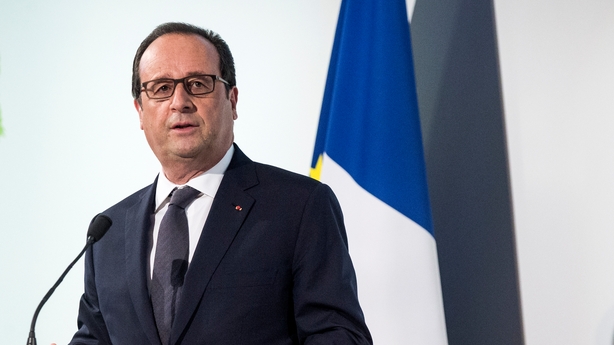Pro-Russian separatists in eastern Ukraine today postponed local elections that the Ukrainian government had said were illegitimate and which, if they went ahead, could have derailed the country's fragile peace process.
The separatists said the elections would go ahead in February next year, potentially giving time for international mediators to hammer out a compromise agreement.
The concession by the separatists comes at a time when Russia has adopted a more constructive tone in talks over Ukraine, according to diplomats involved in the discussion who say Russia has influence over the rebels.
"[We] announce the consent of the Luhansk and Donetsk peoples' republics to postpone elections from 18 October and 1 November to next year," separatist envoys to the peace talks were quoted as saying by the DAN news agency, based in the main separatist-controlled city of Donetsk.
Under the terms of a peace agreement signed in Minsk in February, local elections were to be held on 25 October in the separatist regions of Donetsk and Luhansk, along with the rest of the former Soviet republic.
But Ukraine has since said they cannot take place in the east because of continued security problems there.
It said they would only be legitimate if held under Ukrainian state control, but Kiev's writ does not run in parts of the two regions.
Ukrainian President Petro Poroshenko said this weekend that Russia's leader Vladimir Putin had promised to ask pro-Russian separatists to cancel elections planned in rebel-held territory in defiance of Kiev.
"Russia welcomes a decision bypro-Russian separatists in eastern Ukraine to postpone disputed local elections until next February," Kremlin spokesman Dmitry Peskov said today.
The decision to postpone followed last week's talks between the leaders of Russia, Ukraine, France and Germany, who met to discuss the Ukraine peace process.
At the meeting, French President Francois Hollande said it would take time to organise elections in the east that respect international standards and as a result, the so-called Minsk peace process would run beyond its deadline, into next year.
After street protests last year toppled Ukraine's Moscow-leaning leader and installed a pro-Western administration, Russia annexed Ukraine's Crimea region and separatist rebellions broke out in Donetsk and Luhansk region.
More than 8,000 people were killed in the conflict between Ukraine's forces and the separatists who, Ukraine and its Western allies alleged, were backed by Moscow.
Russia denies giving military support to the rebels.
Western countries responded by imposing sanctions on Russia which, among other things, blocked Russia's access to Western debt markets.
Some economists say Russia is complying with the peace process because it needs to start borrowing internationally again to plug the holes in its budget left by low prices for oil, its main source of revenue.
French President Francois Hollande welcomed the elections decision.
"It will allow the continuation of the implementation of the Minsk accord which is the only solution to a peaceful resolution of the Ukraine conflict," Mr Hollande said, referring to the peace deal signed in the Belarussian capital in February.

Mr Hollande and German Chancellor Angela Merkel have been key mediators between Ukraine and Russia in the conflict and last week urged the delay of the contentious local elections in eastern Ukraine to ensure they meet international standards.
The EU welcomed the decision to delay planned elections until 2016 as a "fundamental step" towards full implementation of the Minsk peace accords.
"Due implementation [of the decision] will represent a fundamental step towards full implementation of the Minsk agreements," the European Union's foreign affairs arm said in a statement.
The European Union, which has solidly backed Ukraine, said the rebel decision would allow proper preparations to be made for future local elections in the rebel-controlled areas.
"Together with the recently reached agreement on the withdrawal of smaller weapons this announcement offers renewed hope for a sustainable political settlement of the conflict, based on full respect of international law and Ukraine's independence, sovereignty and territorial integrity," it said.

